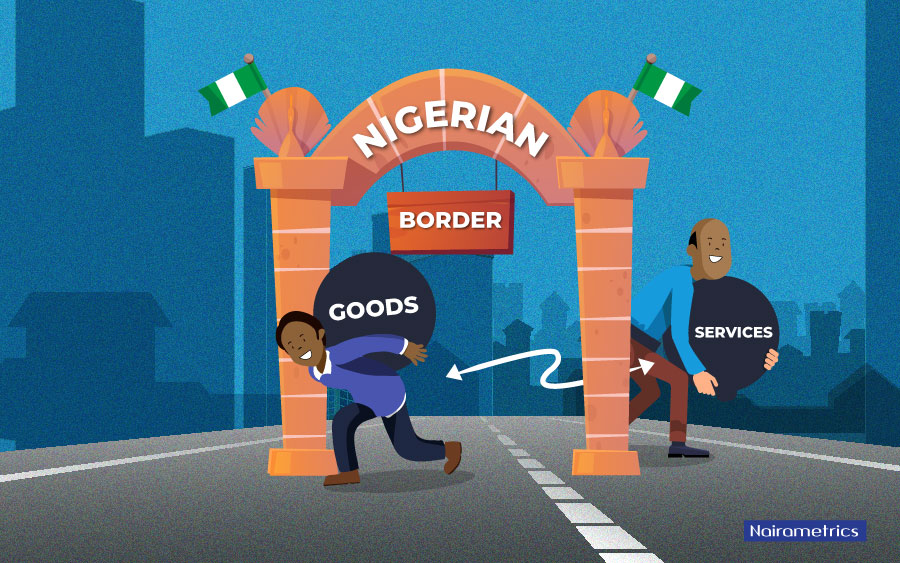The African Continental Free Trade Area (AfCFTA) is expected to open up Nigerian businesses to a market of over 1.2 billion people and a GDP of $2.5trillion.
The Nigerian Government ratified the agreement on November 12, ahead of the December 5 deadline issued by the African Union to its 55 member states, as AfCFTA is expected to commence January 2021.
READ: AfCFTA: States should take advantage of continental free trade – FG
Despite this welcome development, some stakeholders are still concerned with the border closure policy of the Federal Government and dumping of substandard goods in the Nigerian market, with the recent disclosure by the FG that the borders will be reopened soon.
Key stakeholders spoke to Nairametrics on the significance of the ratification to Nigeria, the highly anticipated border opening, and the necessary steps that should be taken by the FG to fully maximize the trade agreement.
READ: AfCFTA: Ratification demonstrates Nigeria’s economic leadership position in Africa – Trade Minister
Importance of the ratification
Mr. Muda Yusuf, the Director-General of Lagos Chamber of Commerce and Industry (LCCI), opined that the ratification has addressed the uncertainties within the Nigerian business circle concerning the FG’s stance on AfCFTA.
He said, “The ratification of the AfCFTA is good news. This decision has cleared the uncertainty and anxiety over Nigeria’s stance on the agreement. The truth is, we have seen a great deal of equivocation and prevarication over the agreement in the last two years.”
READ: Finance Bill: No plans to increase tax — FG
Mr. Cheta Nwanze, Partner and Senior Analyst at SBM Intelligence, said the move is in Nigeria’s best interest since trade has historically been a pathway to prosperity.
He said, “Nigeria’s agreement to ratify is a good move, which is ultimately in the country’s best interest. Now, the country must position itself to make the best of it. Trade has historically been a pathway to prosperity, and this should be no different.”
READ: Airtel Africa posts an all-time high, investors gain N82 billion
After the ratification, what next?
Mr. Yusuf said, “The next step is to support the Nigerian private sector to take advantage of the 1.2billion market and $2.5trillion GDP, which offers tremendous opportunities. We need to strengthen the competitiveness of our domestic firms, especially those in the real sector.
“We need to liberate them from the shackles of constraints putting pressure on their costs and inhibiting their competitiveness. The quality of our infrastructure needs to improve, our policies need to facilitate competitiveness, our regulations need to support business growth, and our institutions need to demonstrate a better appreciation of the value of investment and investors in the economy.”
READ: Recession; proactive measures not cyclical factors can resuscitate economy
However, he emphasized that the competitive nature of the agreement would create ‘winners and losers’ and urged Nigerian businesses to review their business models.
“The AfCFTA will produce winners and losers across sectors. The vulnerability risks vary from sector to sector. Investments in the real sector are more vulnerable than those in the service sector. It calls for a review of the business models of many firms and industries in the light of new competitive forces that will emerge.
“The business landscape will change and many investment assumptions would have to be reviewed to ensure sustainability,” he added.
The anticipated border reopening
Mr. Nwanze believes the FG has taken the right step with the planned reopening of the border. But, believes that the borders will not be opened, with the perceived contradiction that exists amongst government agencies on the border closure issue.
Nwanze said, “The Finance Minister already said that the borders will be reopened. However, her disclosure, which is in the right direction, has been contradicted by the Agriculture Minister.
“Ideally, what should come next is for the government to put things in place for an export driven economy. That’s the way to take advantage of the AfCFTA. Unfortunately, the signal that we are seeing indicates major opposing views within the government.”
READ: Despite billions on agriculture, food inflation up by 108% since 2015
“If I were to bet on this, I’d say that the borders will remain shut beyond 1st of January, and this attitude to trade will continue as long as Customs remain under the current leadership.
“It is quite contradictory, especially as a Nigerian, Ngozi Okonjo-Iweala, is set to become WTO DG and as a result, one of the world’s leading advocate for trade. This represents a major irony,” he added.
Mr. Yusuf said, “The border closure is not consistent with the ratification of AfCFTA, which is why the FG has considered reopening the land borders ahead of its commencement in January 2021.”
The fear of dumping from neighboring countries
Mr. Nwanze said, “There are already a number of bodies who are tasked with ensuring that certain goods are of the required quality.
“Customs, the Standards Organization of Nigeria, NAFDAC, and others should do their jobs and stop harassing business people. The final arbiter of course is the consumer, who decides where and on what to spend his hard-earned money, rather than just settling for substandard goods.”
What you should know
- Vice President Yemi Osinbajo disclosed in a conference with the Chartered Institiute of Personnel Management of Nigeria (CIPM) on Thursday, November 26 that quicker implementation of ratification protocols will ensure free movement of services, goods, and persons.
- Yewande Sadiku, CEO of Nigerian Investment Promotion Council (NIPC), said in September that Nigeria is more ready for the African Continental Free Trade Area (AfCFTA), due to her domestic market manufacturing value addition capacity, which is 7 times the average of the top 20 economies in Africa and others.
- The Nigerian trade office also disclosed that the Instrument of Ratification will be deposited with the AUC at Addis Ababa on Tuesday, December 1, 2020.
Bottom line
Nigeria has the potentials to benefit from the trade agreement in the areas of agriculture and service exports. However, Nigerian companies should be strategically prepared to compete with other African countries for the 1.2 billion market share.
Summarily, just like the EU and ASEAN trade bloc has produced some ‘winners’, the same is expected to happen when AfCFTA commences next year.












